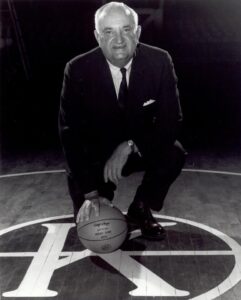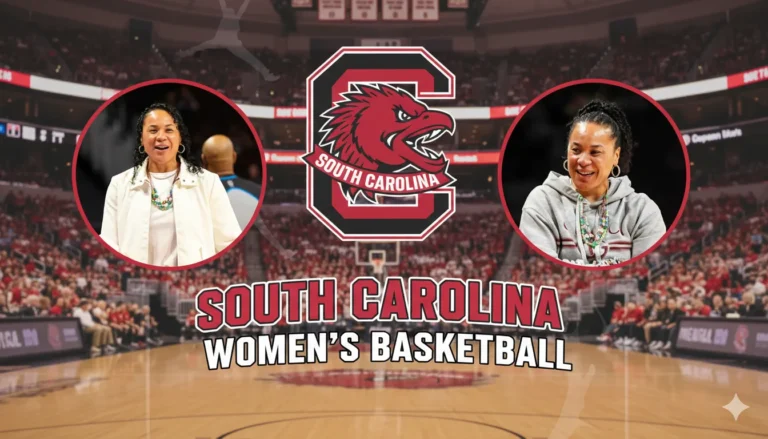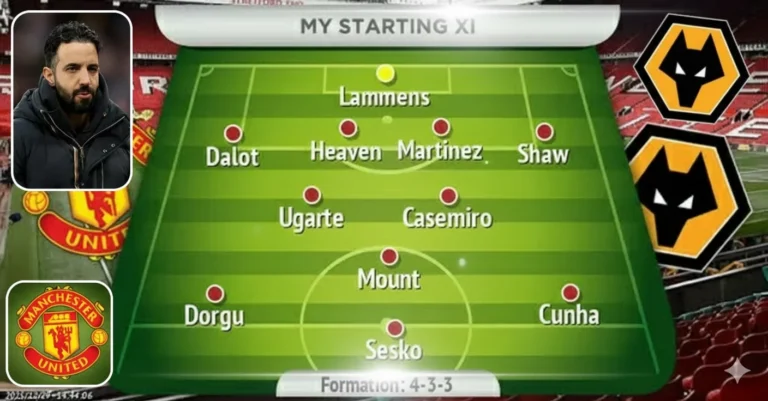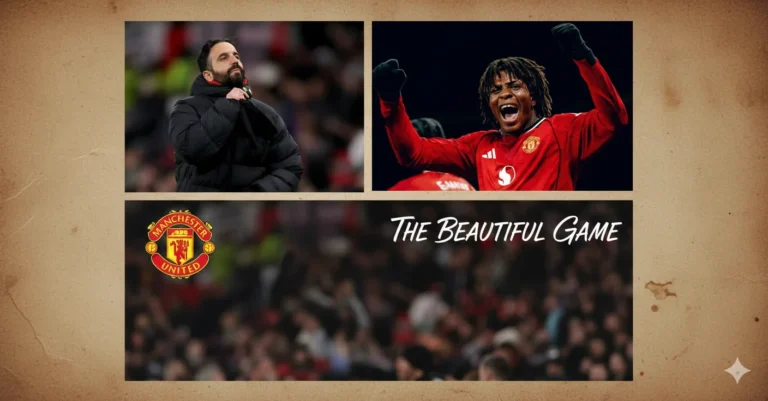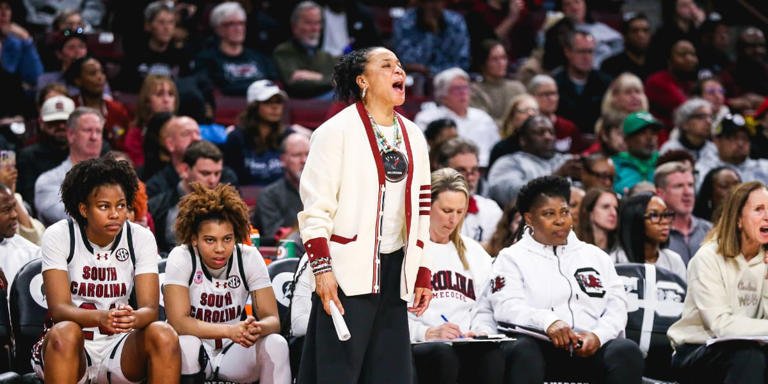
From Lexington to Rupp Arena rafters, the University of Kentucky men’s basketball team is among the most legendary in NCAA history. With eight NCAA titles, the Wildcats rank second only behind UCLA for the most championships. ([Wikipedia][1]) They boast the highest all-time winning percentage and the most all-time victories in Division I men’s basketball. ([Wikipedia][1])
Kentucky also leads in most of the statistics throughout the tournament: most NCAA tournament appearances (60+), most Elite Eight finishes, and most Sweet Sixteen appearances. ([Wikipedia][1]) Five different coaches have won NCAA championships in Kentucky’s history: Adolph Rupp, Joe B. Hall, Rick Pitino, Tubby Smith, and John Calipari. ([Wikipedia][1])
That kind of consistent excellence provokes the critics: who among Kentucky’s many greats is “the best” or a member of its all-time starting five? Following is a historical primer and a subjective but passionately informed attempt.
Legendary Figures & Key Eras
Understanding Kentucky’s all-time excellence requires an acquaintance with its legendary characters—coaches and players—who set the stage for future stars.
The Coaches Who Built & Sustained the Tradition
- Adolph Rupp Rupp, who was brought in 1930, coached through 1972, and earned nicknames such as “Baron of the Bluegrass.” Four NCAA championships (1948, 1949, 1951, 1958) and one NIT championship (1946) were achieved under his leadership. ([Wikipedia][1]) He had a lasting impact that transcended wins—Rupp impacted the culture and expectations at Kentucky. ([Wikipedia][1])

- Joe B. Hall
One of Rupp’s former assistants, Hall replaced Rupp and won the 1978 national championship. He coached Kentucky from 1972 to 1985. ([Wikipedia][1]) - Rick Pitino
After a scandal-tainted era, Pitino inherited the program in 1989 and rebuilt it, leading Kentucky to the 1996 NCAA championship. ([Wikipedia][1]) - Tubby Smith
Smith coached from 1997 to 2007 and claimed the 1998 national championship, giving Kentucky its sixth. ([Wikipedia][1]) - John Calipari
Calipari’s run (2009–2024) revived Kentucky’s place among modern elites. His squads went to multiple Final Fours and won the 2012 title. ([Wikipedia][1])
Each of these coaches had different styles and philosophies. Their ability to recruit, adapt, and maintain excellence across decades is a major reason Kentucky remains a perennial power.
The Player Legends — Building Blocks of the Tradition
Kentucky’s history also hangs on transcendent players—those whose impact resonated both in college and, quite often, in the NBA.
Some of the more legendary monickers include:
- Ralph Beard / Alex Groza / Kenny Rollins
These three represented Kentucky’s “Fabulous Five” era during the late 1940s, guiding the Wildcats to back-to-back NCAA championships in 1948 and 1949. ([Wikipedia][2]) - Louie Dampier
A two-time All-American, Dampier was a Naismith Hall of Famer and also Kentucky’s first modern-era star. ([Wikipedia][2]) - Dan Issel
All-time leading scorer in Kentucky history until the recent past, Issel dominated the late 1960s. ([Wikipedia][2]) - Jack “Goose” Givens
Clutch performer and scorer who is best known, Givens remains one of the most popular graduates of Kentucky. ([Wikipedia][2]) - Tony Delk
One of the key members of the 1996 championship team, Delk was Final Four Most Outstanding Player. ([Wikipedia][2]) - Jamal Mashburn / Antoine Walker
Both were the leaders of the early ’90s, All-Americans, and successful NBA players. ([Wikipedia][2]) - John Wall / DeMarcus Cousins / Anthony Davis / Karl-Anthony Towns
These young stars ushered Kentucky into the modern era of “one-and-done” professionals. John Wall was a First-Team All-American consensus selection, DeMarcus Cousins dominated the paint, Anthony Davis was the anchor of the 2012 championship team and was National Player of the Year, and Towns was an NBA top draft pick. ([Wikipedia][1])
Each generation had its own kind of hero: from quintessentially great team guys to one-and-done superstars, the Kentucky team over the years has been full of greatness.
Greatest Teams in Kentucky History
Some Kentucky teams transcend their individual players—they define eras. Some of the following are regularly included in “best of” lists:
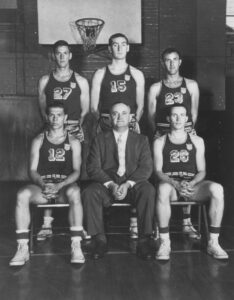
- 1947–48 & 1948–49 (“Fabulous Five”)
The first two NCAA championships in Kentucky history, solidifying the program as a preeminent power. ([CBSSports.com][3]) - 1953–54 (Undefeated, Helms National Championship)
That season, Kentucky ended 25–0 and was declared mythical national champion by the Helms Foundation. ([Wikipedia][1]) - 1995–96
Rick Pitino’s Kentucky finished 34–2 and claimed the national championship. ([Wikipedia][1]) - 2011–12
The Calipari era’s peak season: Kentucky was 38–2 and captured the 8th national championship, having a roster that was loaded with NBA draft picks. ([Wikipedia][1]) - 2014–15
This team began the season undefeated and was praised for stifling defense, ultimately reaching the Final Four. ([CBSSports.com][3])
These teams are constantly criticized for being too concerned with its star power, depth, coaching, and the ability to perform under pressure.
Building an All-Time Kentucky Starting Five
Choosing an “all-time” starting five is always subjective. Any such group is vulnerable to snubs, era disparity, or positional compromises. Nevertheless, drawing from Kentucky’s storied history, here is one variant of an all-time starting five—leaning towards impact, championships, individual awards, and enduring legacy.
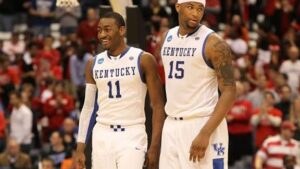
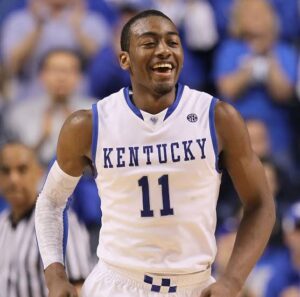
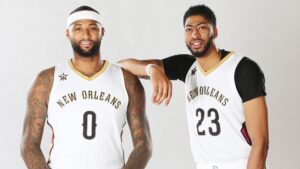
| Position | Player | Why He Belongs |
|---|---|---|
| Point Guard | John Wall | Perhaps one of Kentucky’s best dynamic floor generals. Consensus First-Team All-American, SEC Player of the Year, and Freshman of the Year. His scoring and playmaking ability makes him a natural choice. ([Wikipedia][1]) |
| Shooting Guard | Tony Delk | Unsung but integral performer in the 1996 championship, clutch shooting specialist and leader. A steady, consummate Kentucky team player. ([Wikipedia][2]) |
| Small Forward | Jamal Mashburn | Dominated the early ’90s, was an All-America pick, and was the center of title hopes. ([Wikipedia][2]) |
| Power Forward | Anthony Davis | Defensive Player of the Year, National Player of the Year, led Kentucky to the 2012 title with unprecedented rim defense. ([Wikipedia][1]) |
| Center | DeMarcus Cousins | A physical, force-to-be-reckoned-with presence in the paint. An All-American and one of the largest largest men in program history. ([Wikipedia][1]) |
This roster unites guard play, wing scoring, post strength, and a blend of championship pedigree and individual success. Some worthy mentions left out: Dan Issel (scoring sensation), Louie Dampier, Goose Givens, Alex Groza, Antoine Walker, Karl-Anthony Towns, and many more. Another viable lineup might favor Issel at forward and push one of the guards to sixth man—there are quite a few viable combinations.
Some authors and enthusiasts have experimented with all-time Kentucky lineups; for example, FanBuzz did one that featured the same combination of Wall, Delk, Mashburn, Davis, and Cousins. ([FanBuzz][4])
Why Kentucky’s Legacy Persists
Why is Kentucky more than a string of spectacular teams and lone stars? A few cornerstones of its lasting greatness:
- Continuity and culture
For close to a century, Kentucky has developed a winning mentality. Legends are not only renowned, but they become the standard. Coaches, contributors, and players are immortalized in UK’s halls and banners. ([Wikipedia][1]) - Successful adaptation
Kentucky transformed across decades: from the fundamentals-based 1940s, through the star-centric 1990s, to the high-turnover, one-and-done decade of recent decades. Its capacity for adaptation brought in styles and systems and remained contemporary. - NBA talent recruitment and pipeline
Kentucky leads all schools in drafting prospects to the NBA. ([Wikipedia][1]) Top prospects see Kentucky as a great means of getting attention, being groomed, and transitioning on to the professionals. - **Loyal fan base & Rupp Arena
Home games played at Rupp Arena are some of the most intimidating settings in college basketball. Kentucky routinely is ranked number one nationally in attendance and sports one of the best home records in its building. ([Wikipedia][1]) - Symbolic consistency
Each championship, great team, or legendary coach becomes part of the narrative: “Greatest basketball tradition,” “Bluegrass royalty,” etc. Kentucky’s victories become part of its identity, and its identity fuels future victory.
